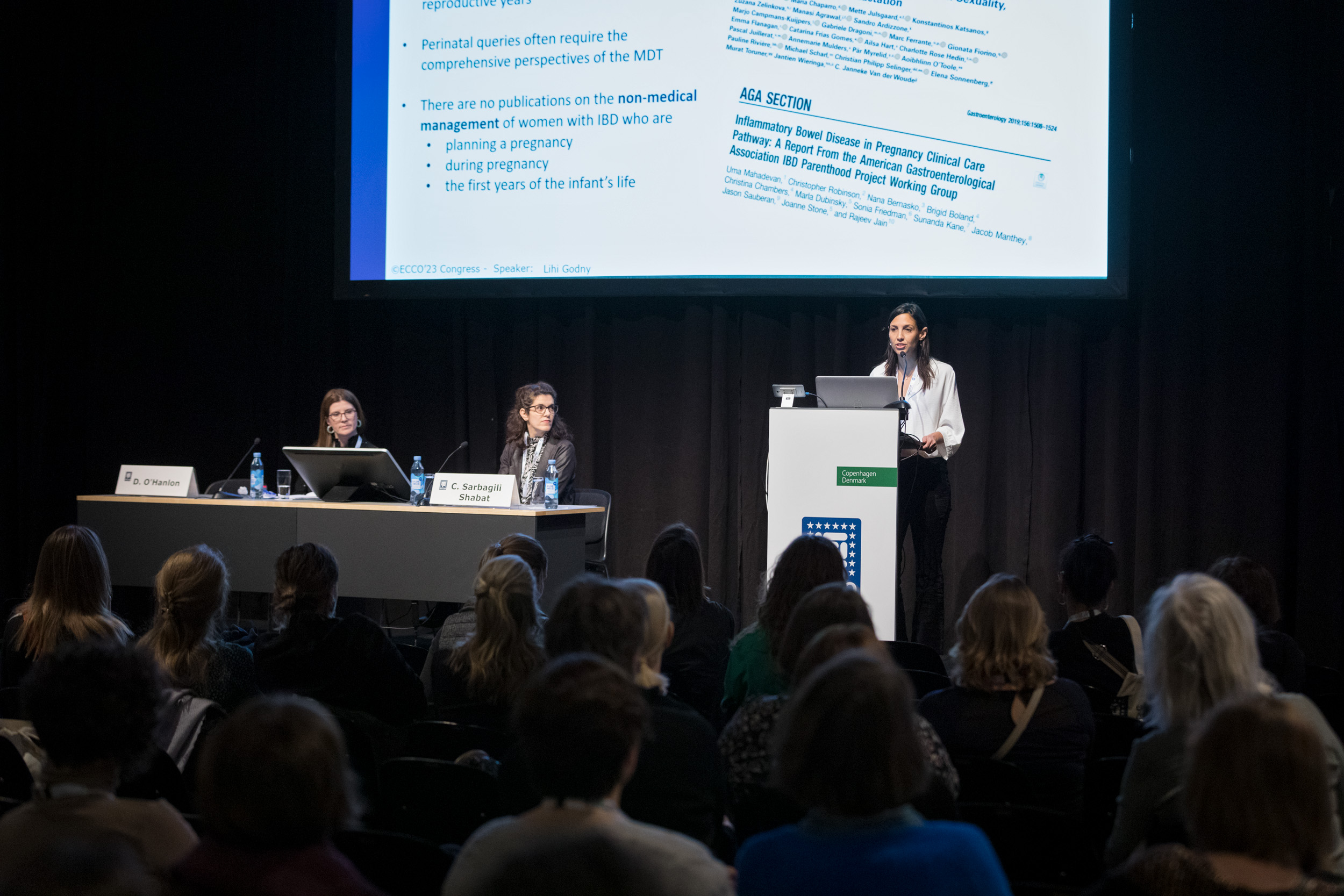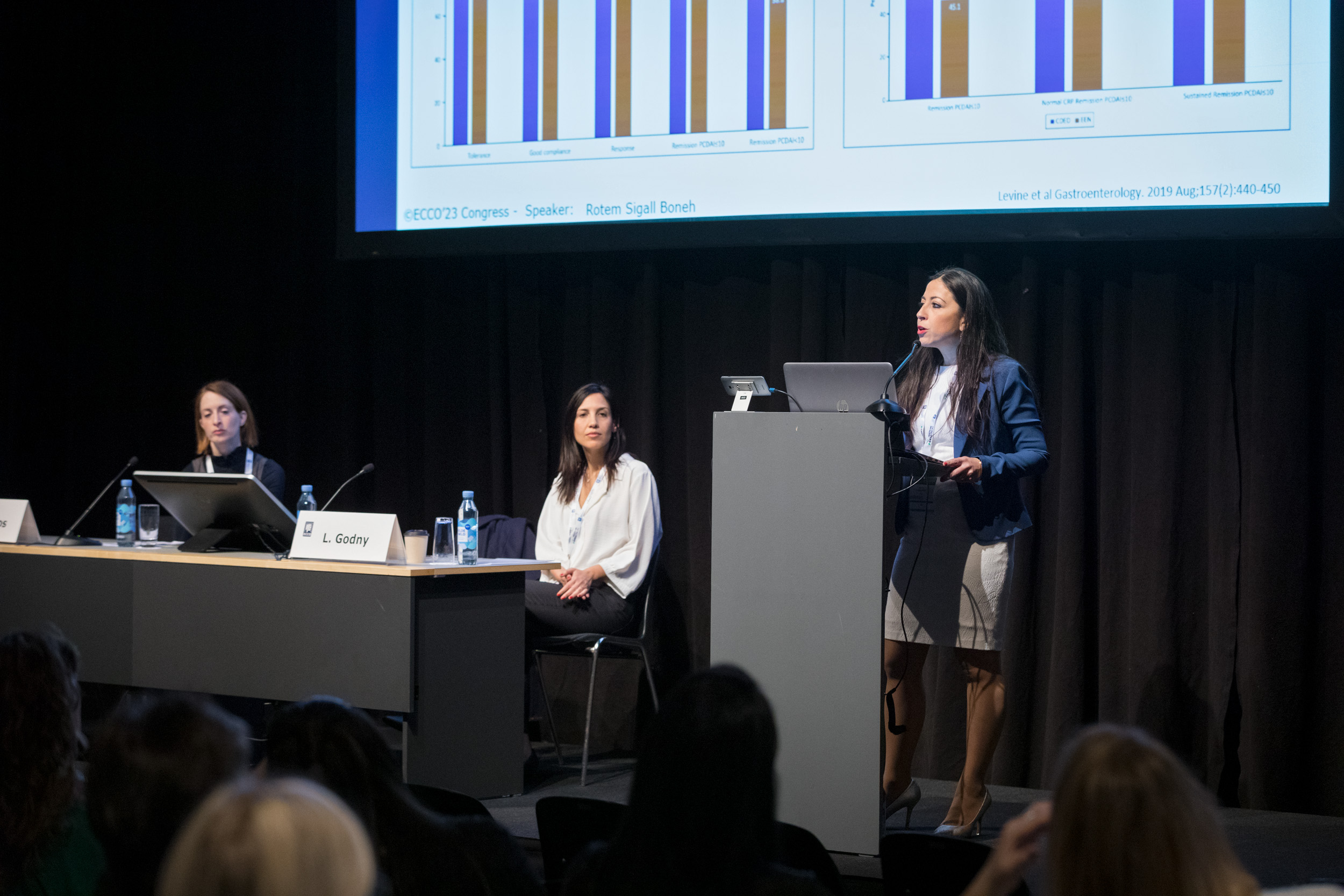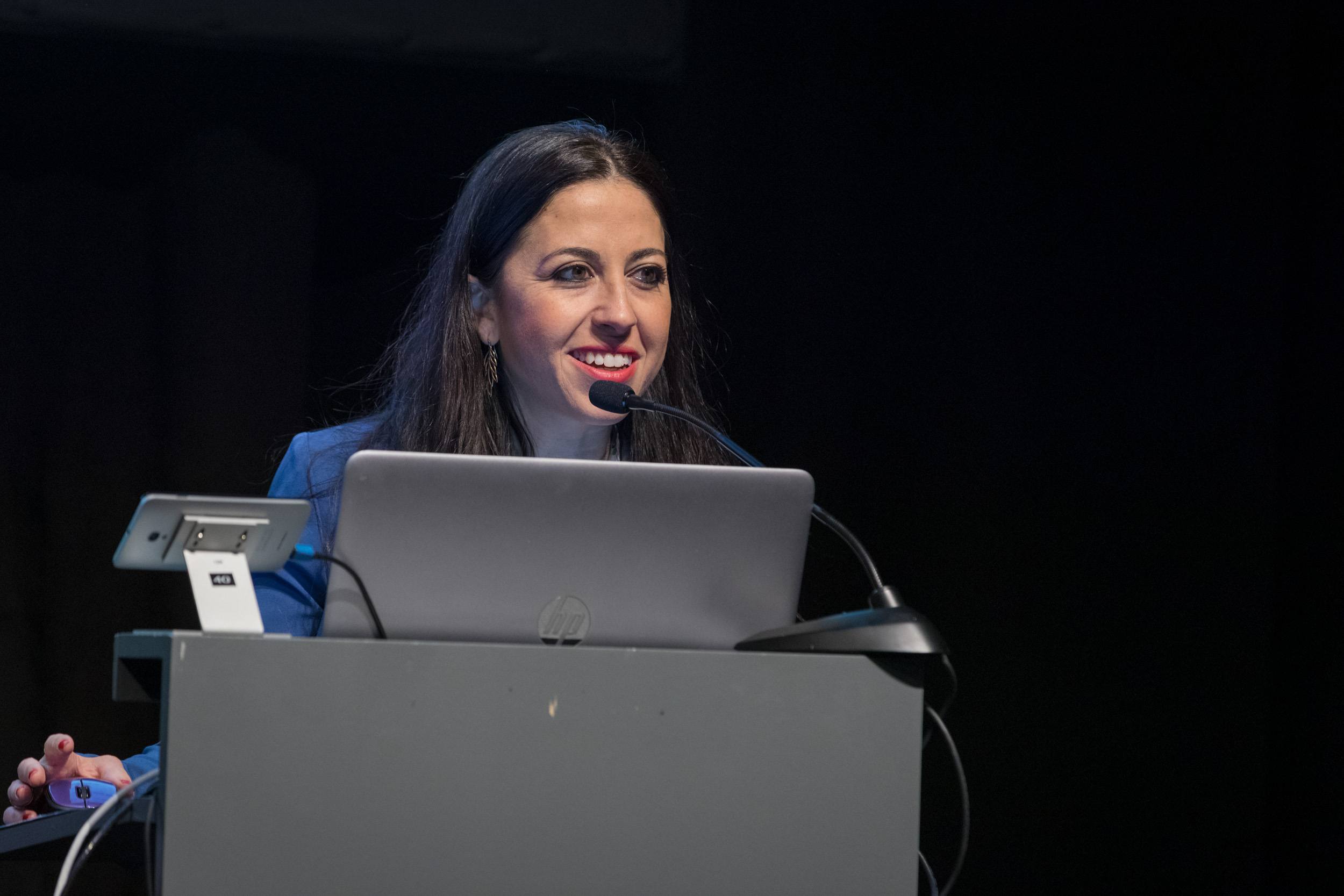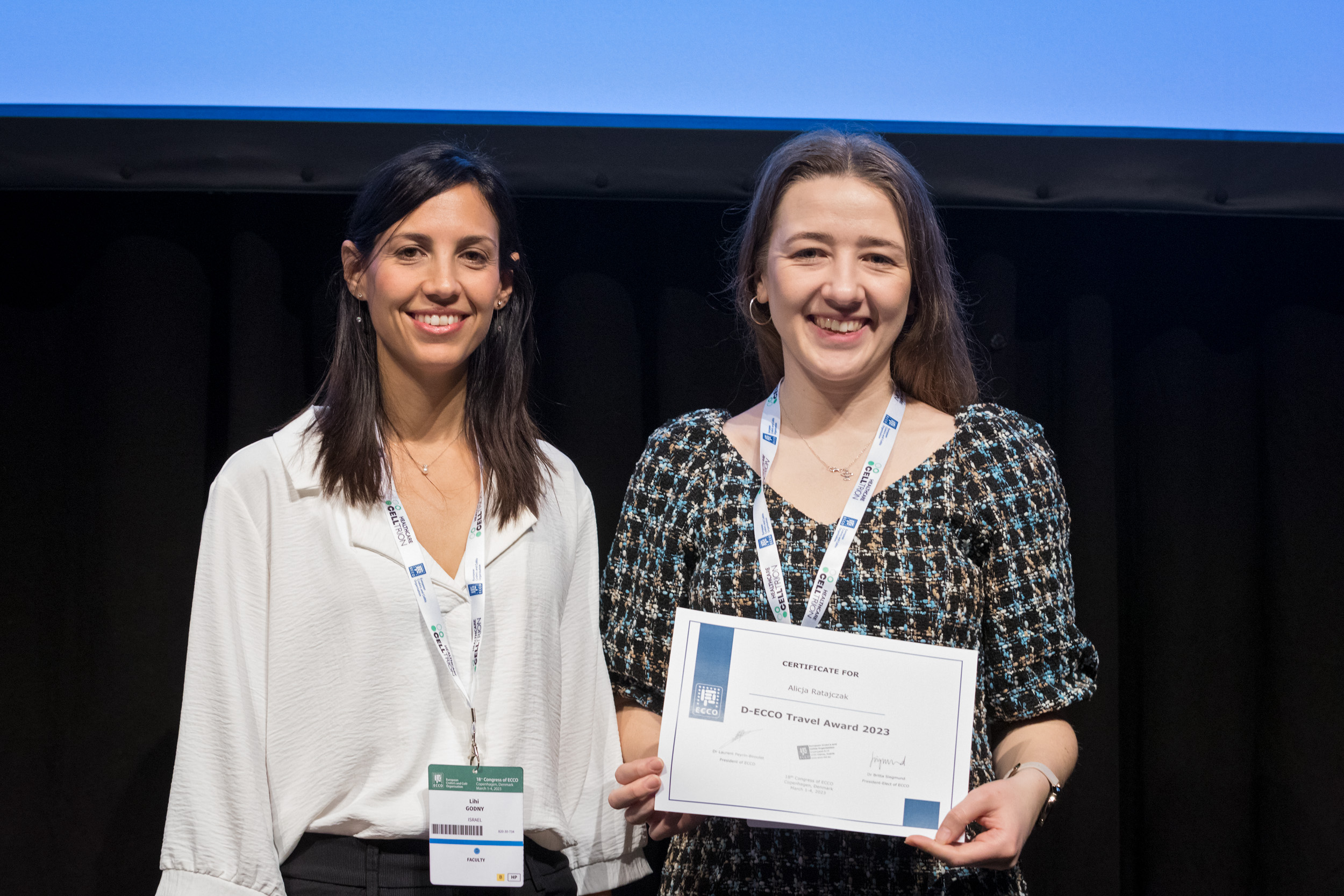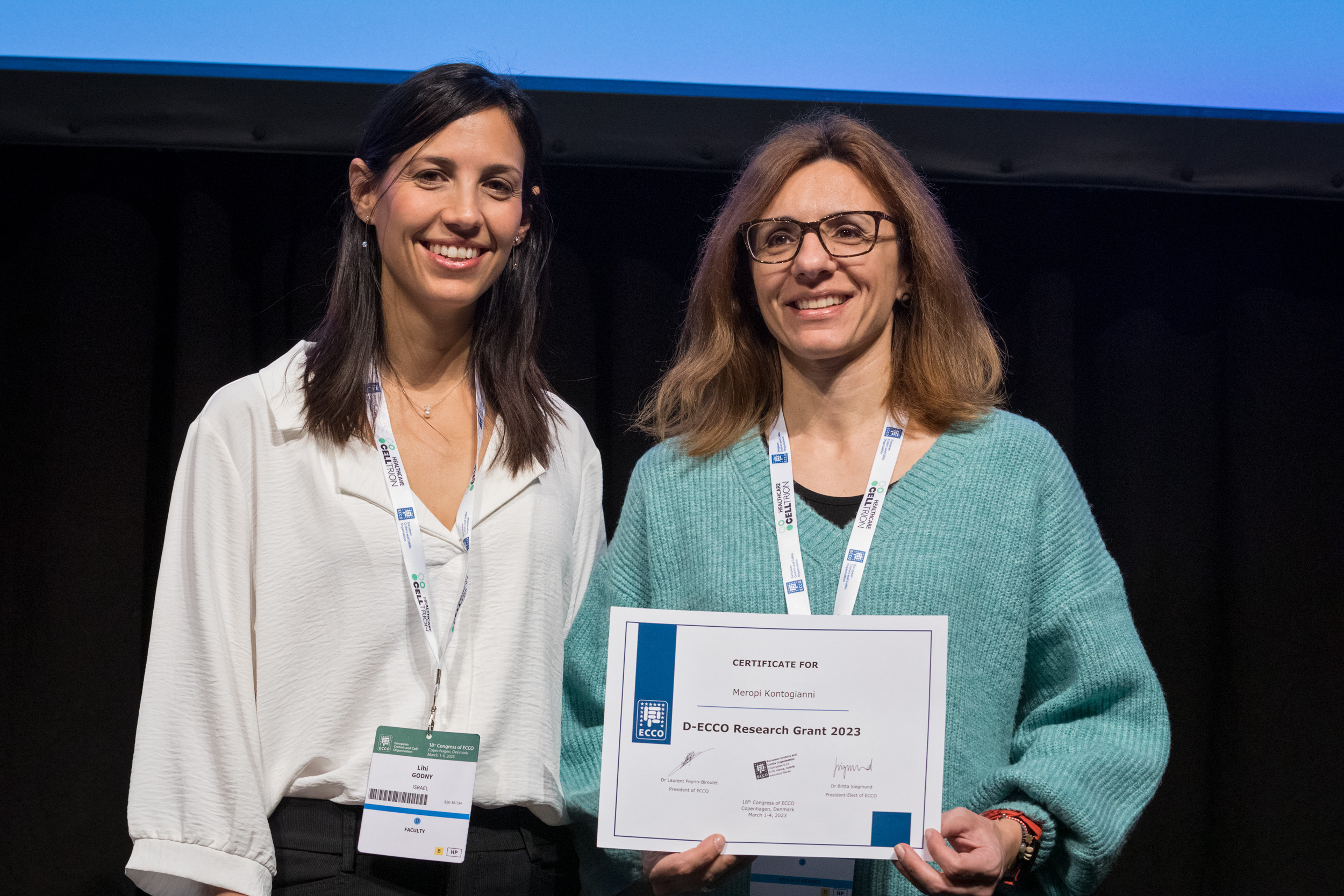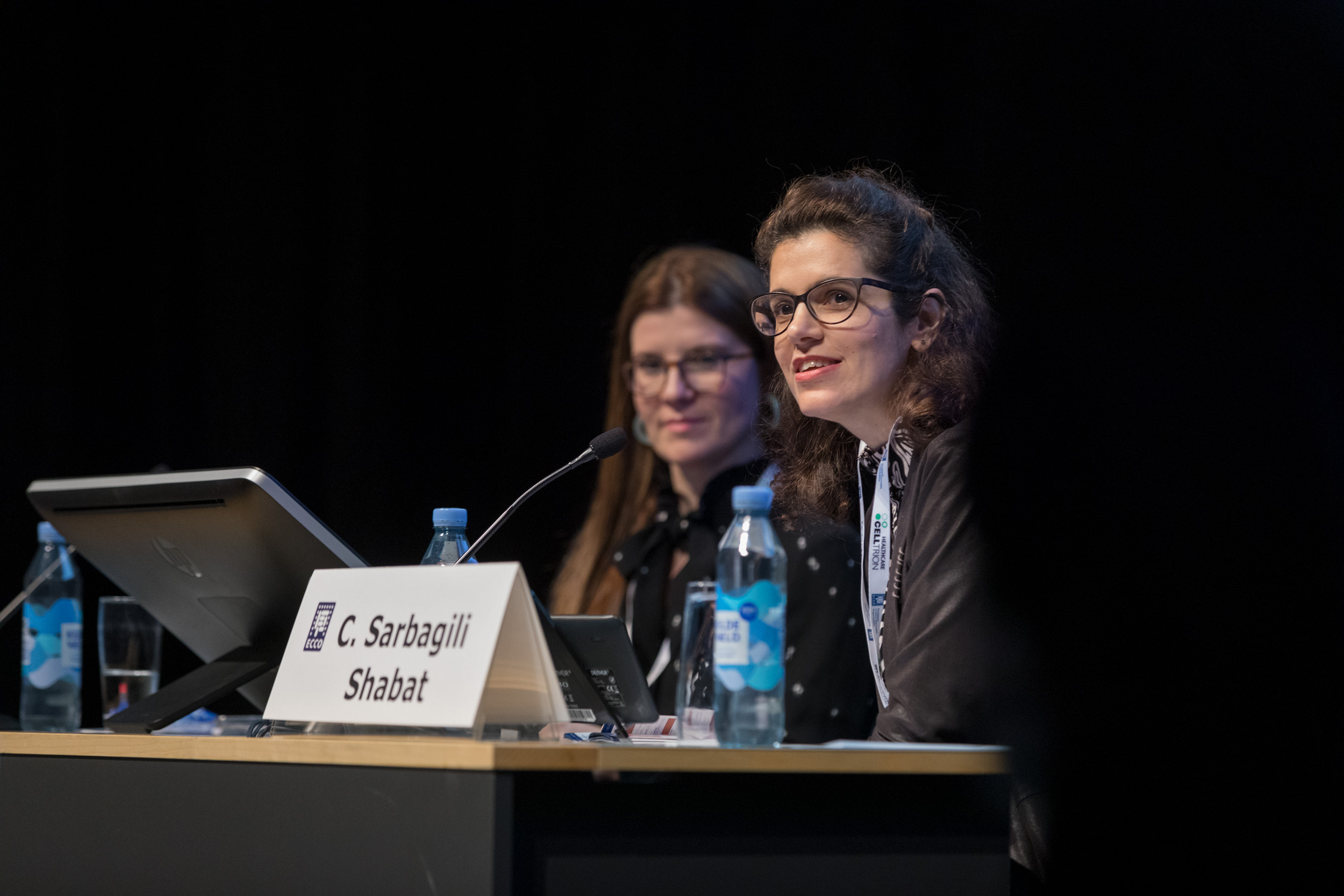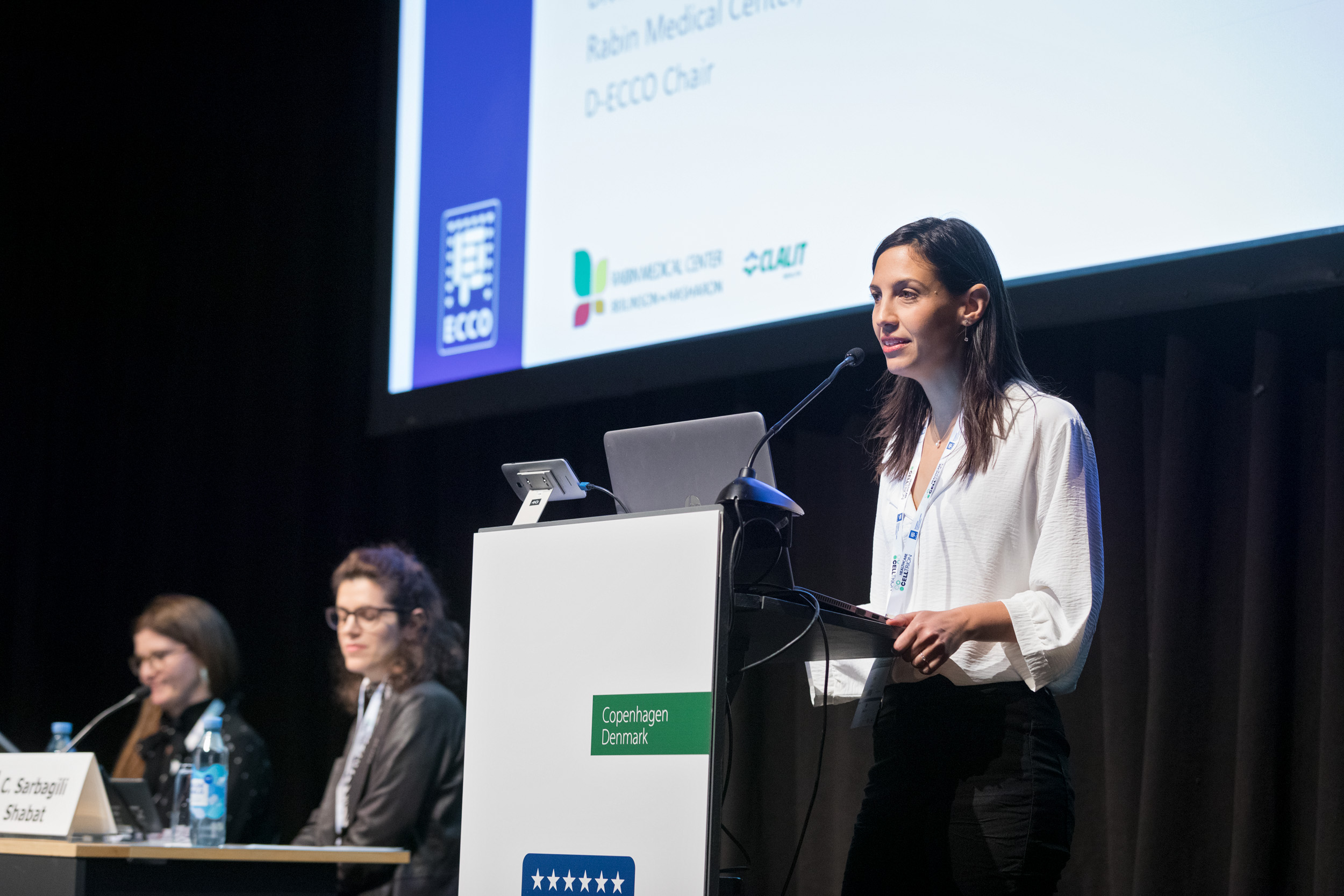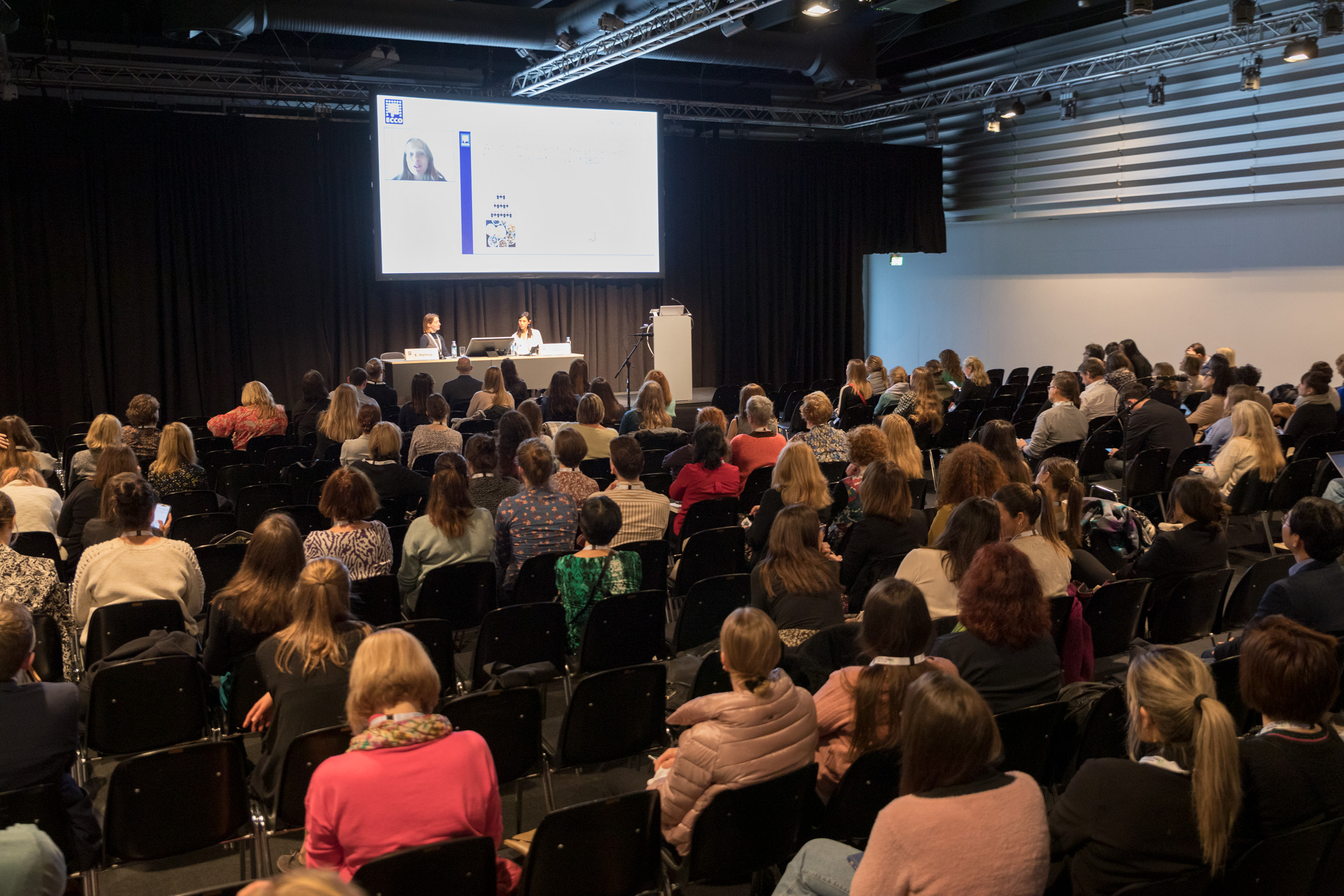Report on the 8th D-ECCO Workshop at ECCO'23
Chen Sarbagili Shabat, D-ECCO Member
 Chen Sarbagili Shabat Chen Sarbagili Shabat © ECCO |
After a long hiatus, the 18th ECCO Congress finally took place in person and face-to-face, which was very exciting. The 8th D-ECCO Workshop was full, with attendees including not only dietitians but also a great mix of specialists from all around the world. There were three Workshop sessions, on “Food science: there is more than EEN for Crohn’s Disease”, “Practical and clinical advice for the IBD dietitian” and “Psychological aspects of dietary management in IBD”. Apart from these sessions, great discussions were hosted and participated in by D-ECCO Committee Members and external speakers, and the D-ECCO Grant and Travel Awards were handed out.
The first session opened with a presentation on dietary targets in Ulcerative Colitis (UC) by myself, Chen Sarbagili (Israel), that covered the role of diet or dietary components in the pathogenesis of UC via several hypothesised mechanisms of action and also presented the results of the latest study to evaluate dietary interventions, especially the Ulcerative Colitis Exclusion Diet (UCED) [1, 2] and the 4-SURE diet [3]. In the next presentation, Eytan Wine (Canada) shared their fascinating work exploring the effect of different dietary fibres on IBD patients [4], offering an insight into the scientific mechanisms. They found that certain types of dietary fibre can induce proinflammatory cytokines and worsen IBD symptoms in select patients with active IBD who lack microbial fermentation of fibre. This result emphasises the variation across patients and the need for personalised recommendations. Alicia Sandall (UK) then presented the role of ultra-processed foods in the aetiology of IBD, starting from a definition of ultra-processed foods and the specific components in ultra-processed foods that may be implicated in IBD. Dr. Sandall focused on recent studies demonstrating an association between a higher intake of ultra-processed foods and the development of IBD, and raised open questions which require further investigation. The session ended with an abstract presentation by Rotem Sigall-Boneh (Israel), who shared results of the DIETOMICS trial indicating that two weeks of EEN followed by the Crohn’s Disease Exclusion Diet and partial enteral nutrition is comparable to exclusive enteral nutrition, and that both are effective in inducing clinical and biochemical remission in mild-severe paediatric CD.
The second session started with a practical presentation by Nicolette Wierdsma (the Netherlands) on how to manage the complicated circumstances of short bowel syndrome and high-output stomas. Dr. Wierdsma emphasised the importance of a multidisciplinary team (MDT), in which the role of the dietitian is crucial. Lihi Godny (Israel) then presented the newly published topical review on the multidisciplinary perinatal care in IBD [5]. Dr. Godny provided an overview of the nutritional and psychosocial needs associated with fertility, pregnancy outcomes and early life exposures and also highlighted the importance of dietitians as part of the MDT. Emma Halmos (Australia) addressed the final topic of this session, emerging diets for IBD treatment, prevention or remission maintenance, highlighting controversies and differences in diet composition in the induction and maintenance phases [6].
The final, interactive session started with the second D-ECCO abstract presentation from the INTICO2 study by Martin McDonnell (UK), suggesting that impaired nutritional state and excessive fatigue are likely to be prevalent among adults with CD during remission. Next was an enriching tandem case presentation by Dearbhaile O'Hanlon (dietitian, UK) and Alexa Duff (psychologist, UK), who addressed the psychological aspects of patient care from the perspectives of a dietitian and a psychologist. They presented the complex case of a patient This led on to an interesting panel discussion in which Dearbhaile O'Hanlon and Alexa Duff were joined by Susanna Jäghult ( a nurse from Sweden) and David Wilson (a physician from the United Kingdom), with each participant providing their input into the patient management.
The 8th D-ECCO Workshop was a very successful event that highlighted the increasing evidence for a link between diet and IBD and documented the major improvement in the role of dietitians in IBD patient care over the past few years.
On behalf of the D-ECCO Committee, I would like to express our gratitude to Eytan Wine and Dearbhaile O'Hanlon, who are stepping down, for their invaluable contributions to D-ECCO, and to welcome our new D-ECCO Committee Members, Vaios Svolos, a registered dietitian from Greece whose scientific achievements have had a major impact on academia and clinical practice, and Julie Vanderstappen, a registered dietitian from Belgium with vast clinical experience in the dietary management of patients with IBD. We are delighted to have both of you on our team and are certain that you will contribute greatly to our efforts to promote the important role of dietitians in the multidisciplinary care of patients with IBD. We thank all the speakers for their exciting presentations and all attendees for their invaluable interactive participation and provision of feedback both live and on social media. See you all next year in Stockholm!
References
- Sarbagili-Shabat C, Scaldaferri F, Zittan E, et al. Use of fecal transplantation with a novel diet for mild to moderate active ulcerative colitis: The CRAFT UC randomized controlled trial. J Crohns Colitis 2022;16:368–78. DOI: 10.1093/ecco-jcc/jjab165
- Sarbagili-Shabat C, Albenberg L, Van Limbergen J, et al. A novel UC exclusion diet and antibiotics for treatment of mild to moderate pediatric ulcerative colitis: A prospective open-label pilot study. Nutrients 2021;13:3736. DOI: 10.3390/NU13113736.
- Day AS, Yao CK, Costello SP, et al. Therapeutic potential of the 4 strategies to SUlfide-REduction (4-SURE) Diet in adults with mild to moderately active ulcerative colitis: An open-label feasibility study. J Nutr 2022;152:1690–701. DOI: 10.1093/JN/NXAC093.
- Armstrong HK, Bording-Jorgensen M, Santer DM, et al. Unfermented β-fructan fibers fuel inflammation in select inflammatory bowel disease patients. Gastroenterology 2023;164:228–40. DOI: 10.1053/j.gastro.2022.09.034.
- Godny L, Svolos V, Williams A-J, et al. Multidisciplinary perinatal care in IBD. J Crohns Colitis 2022, Dec 20. DOI: 10.1093/ECCO-JCC/JJAC189. Online ahead of print.
- Fitzpatrick JA, Melton SL, Yao CK, Gibson PR, Halmos EP. Dietary management of adults with IBD – the emerging role of dietary therapy. Nat Rev Gastroenterol Hepatol 2022;19:652–69. DOI: 10.1038/S41575-022-00619-5.
Pictures are subject to copyright © ECCO



